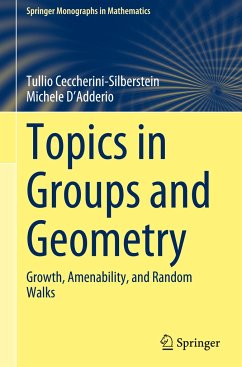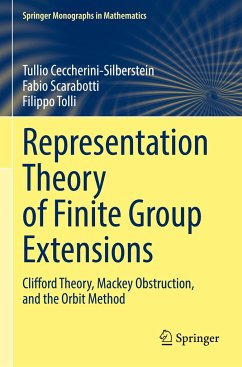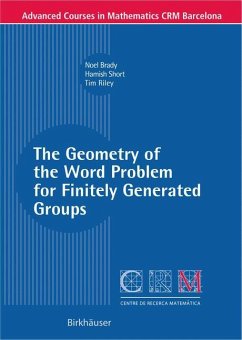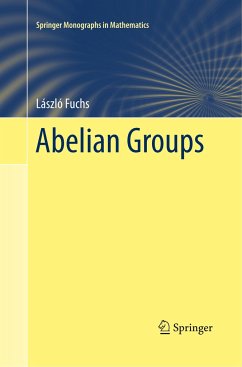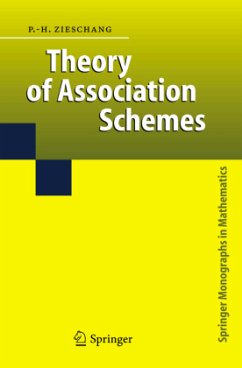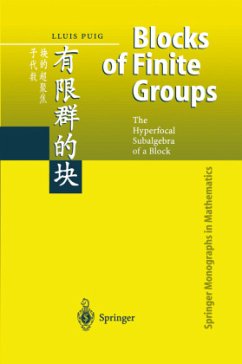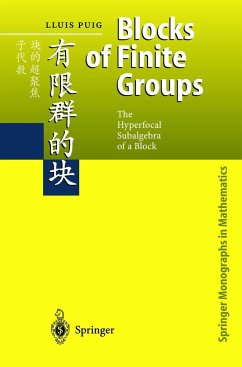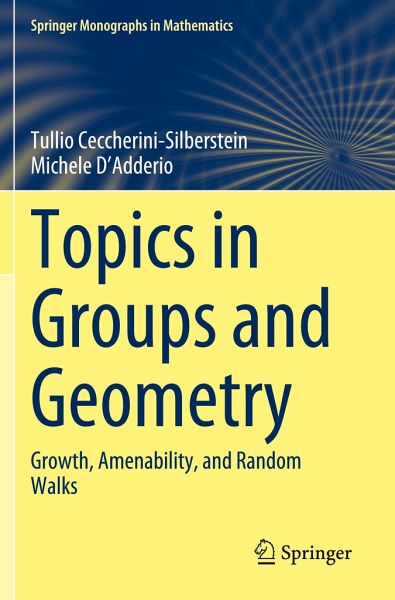
Topics in Groups and Geometry
Growth, Amenability, and Random Walks
Mitarbeit: Zelmanov, Efim
Versandkostenfrei!
Versandfertig in 1-2 Wochen
96,29 €
inkl. MwSt.
Weitere Ausgaben:

PAYBACK Punkte
0 °P sammeln!
This book provides a detailed exposition of a wide range of topics in geometric group theory, inspired by Gromov's pivotal work in the 1980s. It includes classical theorems on nilpotent groups and solvable groups, a fundamental study of the growth of groups, a detailed look at asymptotic cones, and a discussion of related subjects including filters and ultrafilters, dimension theory, hyperbolic geometry, amenability, the Burnside problem, and random walks on groups. The results are unified under the common theme of Gromov's theorem, namely that finitely generated groups of polynomial growth ar...
This book provides a detailed exposition of a wide range of topics in geometric group theory, inspired by Gromov's pivotal work in the 1980s. It includes classical theorems on nilpotent groups and solvable groups, a fundamental study of the growth of groups, a detailed look at asymptotic cones, and a discussion of related subjects including filters and ultrafilters, dimension theory, hyperbolic geometry, amenability, the Burnside problem, and random walks on groups. The results are unified under the common theme of Gromov's theorem, namely that finitely generated groups of polynomial growth are virtually nilpotent. This beautiful result gave birth to a fascinating new area of research which is still active today.
The purpose of the book is to collect these naturally related results together in one place, most of which are scattered throughout the literature, some of them appearing here in book form for the first time. In this way, the connections between these topics are revealed, providing a pleasant introduction to geometric group theory based on ideas surrounding Gromov's theorem.
The book will be of interest to mature undergraduate and graduate students in mathematics who are familiar with basic group theory and topology, and who wish to learn more about geometric, analytic, and probabilistic aspects of infinite groups.
The purpose of the book is to collect these naturally related results together in one place, most of which are scattered throughout the literature, some of them appearing here in book form for the first time. In this way, the connections between these topics are revealed, providing a pleasant introduction to geometric group theory based on ideas surrounding Gromov's theorem.
The book will be of interest to mature undergraduate and graduate students in mathematics who are familiar with basic group theory and topology, and who wish to learn more about geometric, analytic, and probabilistic aspects of infinite groups.





